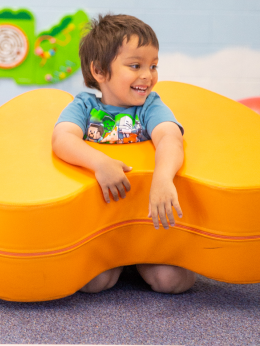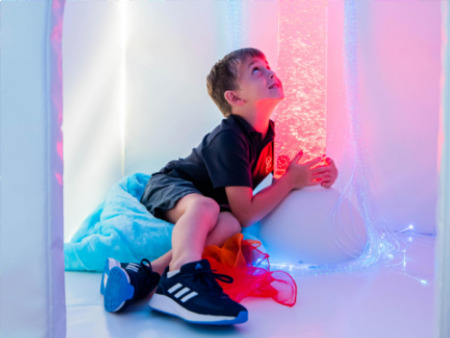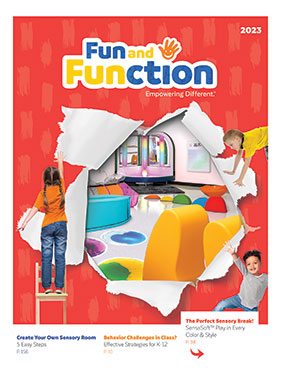As lockdowns, school closures, and changing restrictions continue, a question many parents grapple with is how to foster social skills while maintaining social distancing. Are kids truly able to learn to interact with other people when they spend so much time with others virtually? Or will kids build up a large social deficit, leaving them unable to recognize how their behavior impacts others?
We spoke with Paige Brown from Skills on the Hill about this topic and gained valuable tips and tricks to try with your kids!
Build the Foundations
As with any endeavor, it’s important to have strong foundations. When it comes to teaching our kids social skills, there are three main things for parents to focus on. Children model their behavior after their parents and caregivers. This form of attachment means that, especially during unusual times such as these, it is crucial to interact with others the way you hope your kids will as well.
Next is the idea of sensory processing, the ability to focus our senses on and process the social interaction we’re having with others. Learning self-regulation methods is particularly beneficial for kids with sensory processing disorders. Teaching your kids mechanisms to self-regulate and stay focused will empower them in future social interactions.
Finally is the concept of theory of mind. This social cognitive skill refers to the ability to recognize that other people are separate individuals and have their own unique thoughts and feelings. Typically, kids begin developing this skill between the ages of 3 and 5, but for kids with SPD or autism, it is often delayed or simply not developed. By working on theory of mind with your kids, you are providing them with the means to have meaningful social interactions and shed the egoist view of younger children.
Fostering Social Skills Virtually
Taking these foundational skills and translating them into virtual interactions can feel intimidating, but is not impossible. There are many creative ways to engender social skills that kids will carry with them despite the social distancing restrictions in place now. Here are some of our favorites to do over video calls:
1. Play a game
Rather than just talking to the other person, turn a video call into a venue for games to mimic a normal playdate. Opt for a card game, like war, which can easily and quickly be done over the computer. Alternatively, play a game that focuses on expressions.
Emotional charades is a great way to teach kids to identify emotions through auditory processing. Have children close their eyes while you speak in a way that conveys feelings like anger, joy, concern, or excitement. Kids need to try and identify what you are feeling without looking at your facial expressions. You can also play a form of peekaboo while wearing a mask, so that kids can practice recognizing emotions only from the visible portion of your face. If they get it right, lower the mask to show them the rest of your expression!
2. Eat meals together
Whether you’re social distancing or simply live too far away for a Sunday night dinner together, you can facilitate the interaction over FaceTime or Zoom. Set an extra space at your table with your device visible. This way you can share a meal with family and friends while they do the same on their end! Kids will still get to experience what it is like to interact with guests.
3. Practice whole body listening
A major part of social interactions is being present. For many kids, though, this is difficult, especially during virtual interactions which already start off feeling slightly removed. Spend extra time focusing on theory of mind. Explain to kids that when they appear to be paying attention to something else, the other person’s feelings might be hurt. Create a few ways that enable children to show they are truly listening. One good way is to try maintaining eye contact with the other person. Provide a fidget tool if they need help staying focused. Another great method to show whole body listening is to ask questions or repeat what the other person said in your own words. This also exercises kids’ cognitive and verbal skills!
Teaching kids social skills is a crucial part of growing up. It can be challenging for kids with sensory processing disorders or autism, but regardless of whether social interactions are face-to-face or virtual there are many ways to still provide kids with the skills they need.
Check out our collection of social emotional learning tools.
We’d love to hear how you help your kids develop social skills while social distancing! Share your tips in the comments below so that we can all benefit from the ideas.






















Comments